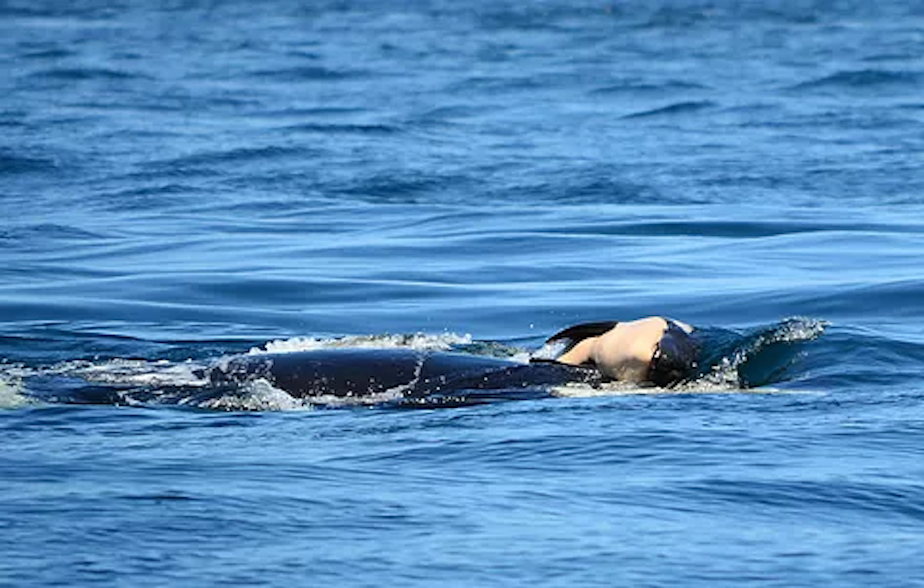Orca deaths: 'Something is really wrong with our ecosystem'

Last Tuesday, a new Orca calf was born to one of Puget Sound’s resident pods. The birth should have been a moment of celebration for the endangered population, but it quickly turned to tragedy when the calf died within a half hour.
Since then, the mother has been carrying the dead calf on her head, diving down to retrieve the body when it slips off.
See more: 3 fascinating orca facts we didn't know before
“Without anthropomorphizing too much, it's really hard to avoid concluding that this is mourning behavior,” said Dr. Jason Colby, associate professor of environmental history at the University of Victoria. “It's heartbreaking to watch, especially when you realize how precious these each of these calves are.”
The images have become iconic, popping up in national and international outlets over the last week.
“Pictures can tell stories,” Colby said. “And the story is that we've failed them.”
Colby is the author of the book, “Orca: How We Came to Know and Love the Ocean's Greatest Predator.” He said our southern resident orcas have transformed the way our society views whales and the treatment of the marine environment.
“This was the population that changed us, that transformed us, made us better people,” he said, speaking to Bill Radke on KUOW’s The Record. “We don't view the Salish Sea as an inexhaustible resource we can just dump raw waste into and take an unlimited amount out of.”
Colby argues that these orcas are on the knife's edge of extinction due to a variety of factors: pollution, boat strikes, and, most of all, a depletion of Chinook salmon, orcas' main food source. To reverse course, he said, the humans would have to stop commercial and sports fishing until there’s a recovery in the Chinook salmon population, undam rivers, and reduce marine noise and polution.
“The southern resident killer whales are the canary in the coal mine,” Colby said. “They're at the very top of the food chain in the Salish Sea, and if they're starving, and if their bodies are so toxic they have to be treated as hazardous waste when they die, something's really wrong with our ecosystem.”
Produced for the Web by Kara McDermott.

